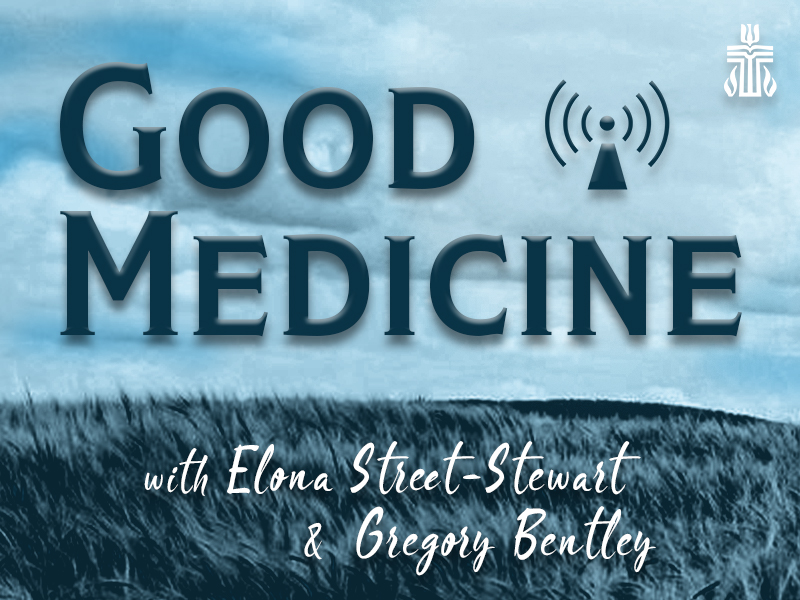
When you examine scripture, how does the lens of colonization influence how you read and understand those passages? That’s the question asked during Wednesday’s broadcast of Good Medicine, a monthly online conversation with the Co-Moderators of the 224th General Assembly (2020).
The Reverend Gregory Bentley and Ruling Elder Elona Street-Stewart spoke with Jim Bear Jacobs, a member of the Stockbridge-Munsee Mohican Nation, located in central Wisconsin. He also serves as pastor of the Church of All Nations, a multicultural community Presbyterian church, located in Columbia Heights, Minnesota, as part of the Presbytery of the Twin Cities Area. Jacobs is also program director of racial justice for the Minnesota Council of Churches.
“In terms of decolonizing our consciousness, it requires people of faith to begin reexamining the stories that we hold sacred from Scripture and how the lens of colonization influences how we read and understand those stories,” he said. “We are socialized into thinking of things in straight lines. The creative world doesn’t operate in straight lines, it’s circular.”
Jacobs said that by looking through an Indigenous lens, Holy Scriptures can take on a new meaning. But, he adds, that requires Indigenous knowledge and perspective.
“I tell white people to stop bringing their Bible to me and telling me what it says. Instead, bring your Bible and ask me what it says,” he said. “We as Indigenous people retain this precolonial understanding so we can read Scripture apart from the power system and power structures.”
In 2012, Jacobs founded “Healing Minnesota Stories," an effort to promote understanding and healing between Native American and non-Native people, particularly those in various faith communities.
“The initiative functions on the belief that stories have the power to heal ‘because they make invisible pain visible,’” said Street-Stewart. “Jacobs’ work promotes racial and cultural reconciliation through sharing stories and increasing awareness of the value of American Indian language, culture, and a shared history that aims to bring peoples of various communities and faiths together.”
Bentley asked Jacobs his perspective on the impact national monuments like Mount Rushmore have on Indigenous people.
“The mountain itself was known as the Mountain of Six Grandfathers long before the addition of presidential faces,” Jacobs said. “The area is a space that even the U.S. Supreme Court ruled was illegally stolen from the Lakota people. It was and still is a violation of treaty for white people to occupy that space.”
Jacobs added that none of the four presidents on the mountainside are heroes for Native people.
“Roosevelt was the least detrimental to Native peoples, but under his administration, we lost vast portions of land under the National Parks Act,” he said. “None of those men on that sacred mountain have done anything for Native people.”
“We don’t always see how it is damaging to people who were here long before colonization,” said Bentley. “What does it say to go and celebrate these four presidents when their elevation to this mountain is based on the theft of people? There is a lot of work ahead of us, work that goes against decades and centuries of conditioning, and we have to be intentional in wading through that.”
To see and hear the entire interview, click here. Good Medicine is broadcast monthly on Facebook Live.
